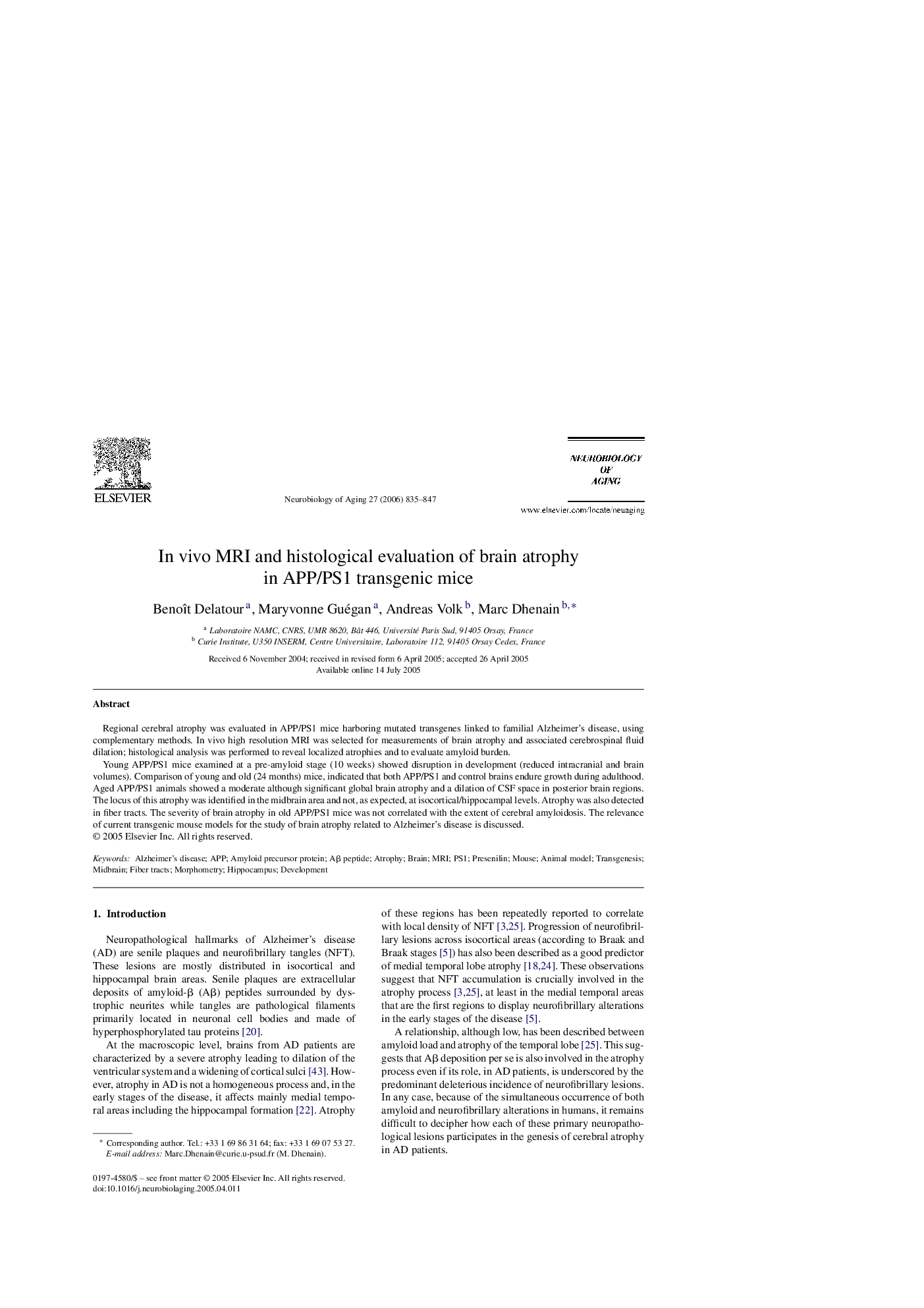| Article ID | Journal | Published Year | Pages | File Type |
|---|---|---|---|---|
| 330622 | Neurobiology of Aging | 2006 | 13 Pages |
Regional cerebral atrophy was evaluated in APP/PS1 mice harboring mutated transgenes linked to familial Alzheimer's disease, using complementary methods. In vivo high resolution MRI was selected for measurements of brain atrophy and associated cerebrospinal fluid dilation; histological analysis was performed to reveal localized atrophies and to evaluate amyloid burden.Young APP/PS1 mice examined at a pre-amyloid stage (10 weeks) showed disruption in development (reduced intracranial and brain volumes). Comparison of young and old (24 months) mice, indicated that both APP/PS1 and control brains endure growth during adulthood. Aged APP/PS1 animals showed a moderate although significant global brain atrophy and a dilation of CSF space in posterior brain regions. The locus of this atrophy was identified in the midbrain area and not, as expected, at isocortical/hippocampal levels. Atrophy was also detected in fiber tracts. The severity of brain atrophy in old APP/PS1 mice was not correlated with the extent of cerebral amyloidosis. The relevance of current transgenic mouse models for the study of brain atrophy related to Alzheimer's disease is discussed.
